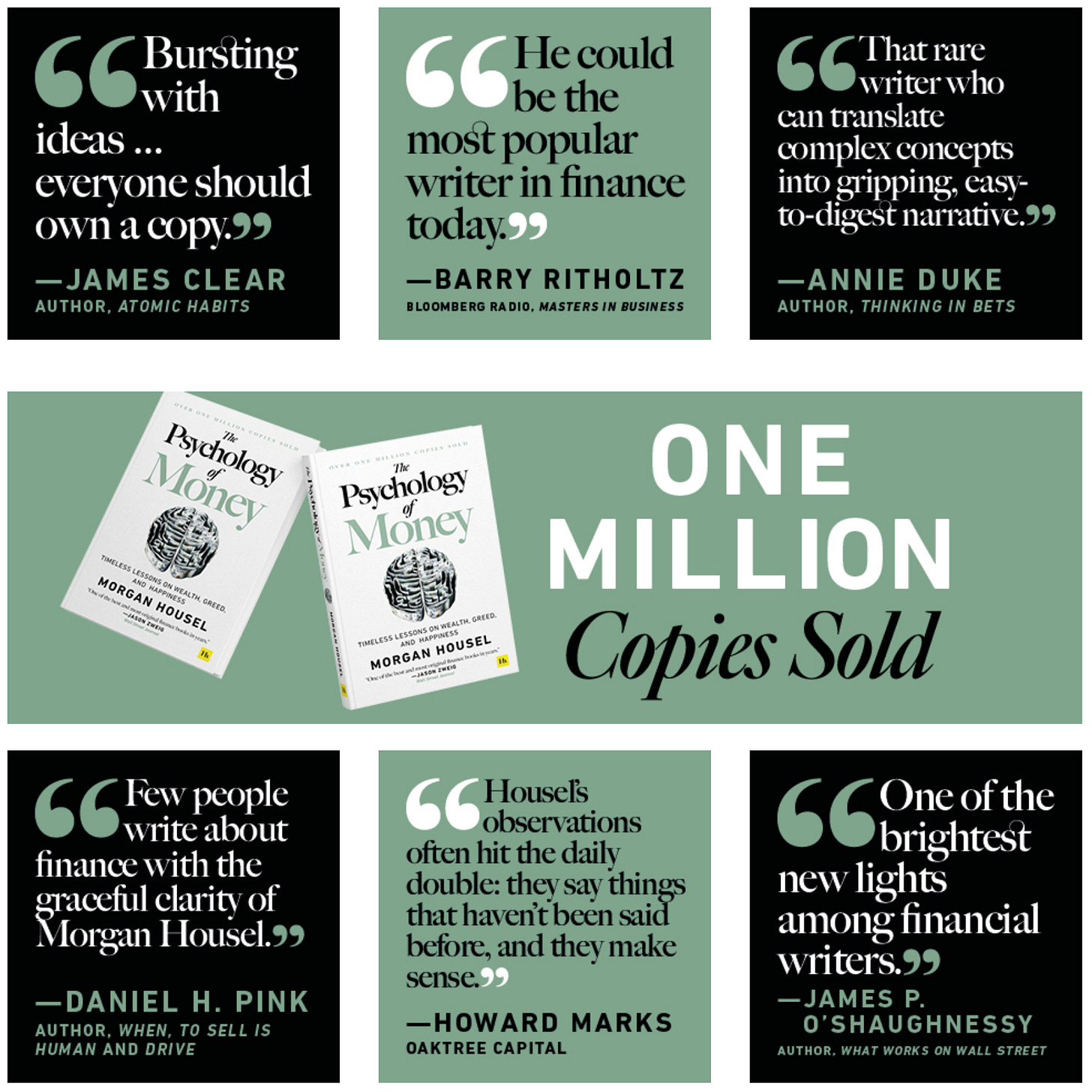11 Life-Changing Lessons From The Psychology of Money
I read it, so you don't have to spend time reading it. Includes four bonus lessons for our paid readers.
Published in 2020, The Psychology of Money is a masterpiece by Morgan Housel, a renowned former finance columnist. Despite the plethora of finance books available, Housel's work has stood out, becoming a best-seller in its own right.
What I like about this book is how Housel explains complex money ideas using easy-to-understand real-life stories. He understands how to make a point without repeating himself and backs up all the statements with concrete evidence. It’s engaging, insightful, and very easy to read. If there were such a thing as the perfect finance book, it would be The Psychology of Money.
Although I plan on discussing the top ten lessons I learned from this book, I highly recommend that my readers read the book. Please grab yourself a copy. I promise you won’t regret it!
So, here are eleven lessons from The Psychology of Money, as promised.
The media likes to promote pessimism rather than optimism since it attracts more attention.
If you tell someone that everything will be alright and their future is looking great, they’re likely to either offer a skeptical eye or shrug you off. But if you tell the same person they’re in danger, you have their undivided attention.
Human nature isn’t just to respond faster to pessimism, we coddle it for longer than necessary. Optimism demands facts and is ditched at the first sign of trouble. On the other hand, pessimism can be grown from a crazy thought or a controversy and clutched indefinitely.
Examples include stock prices going down when in the long term it will continue to increase.
Not all success is due to hard work, and not all poverty is due to laziness. Keep this in mind when judging people, including yourself.
Hard work doesn’t always equate to financial success, and financial struggle doesn’t always equate to people’s laziness. Whether we like to believe this or not, there’s a whole range of factors that affect your financial success.
The story of Bill Gates is a perfect example. He went to one of the only high schools in the world that had a computer. It’s not to discount all the ridiculous hard work he had put in to get where he is today. He probably would have still been majorly successful, but wouldn’t have gone on to become one of the richest programmers in the world, if he didn’t get exposed to computers and programming from high school.
Coming to terms with how much you don’t know means coming to terms with how much of what happens in the world is out of your control.
Nobody likes to feel out of control of their lives. When so many things are happening around you, it’s hard for you to come to terms with the unknown and it will leave you feeling out of control.
The only thing that we can genuinely control is ourselves, and how we react to external stimuli. Most of the things that happen around the world and around us, are way beyond our control and there is literally nothing we can do about it.
The truth is that wealth is what you don’t see.
What we see is not always the truth and doesn’t always tell the full story. We judge wealth based on what we see because that’s the only information we are presented with, before our eyes.
But in reality, the rich and successful people don’t feel the need to brag about it. They live in modest homes, drive inexpensive reliable cars, spend a lot less than what they earn and live a frugal life.
It’s important you realise that Wealth is what you don’t see.
Few things matter more with money than understanding your own time horizon and not being persuaded by the actions and behaviours of people playing different games than you are.
The reason why money is far more complicated is because people get caught up in playing other people’s money games when they should be focusing more on themselves and playing their own game.
Some people want to make quick money in the short-term, whereas other people are happy playing the long game. There’s no right or wrong way to make money. At the end of the day, it’s all about finding a game that works for you and sticking to it. What works for other people might not necessarily work for you and that’s okay.
The economy will keep improving overtime, but there may be some temporary downfalls such as recession and inflation.
The book discusses what happened post the second world war and how lives have dramatically improved since then. The trajectory of the economy is generally one of improvement over time. However, this upward trend is not without its challenges. Periodic economic downturns, such as recessions and inflations, can disrupt growth and cause temporary setbacks. These downturns are often triggered by a variety of factors including market corrections, geopolitical tensions, and policy shifts.
Despite these obstacles, the long-term outlook remains positive. Recessions and inflationary periods, while difficult, are typically followed by recovery phases where corrections occur and stability is gradually restored. Understanding and preparing for these fluctuations is essential for long-term prosperity.
Controlling your time is the highest dividend money pays.
If you ask any billionaire what are the most valuable things money can buy, they would say it is time and freedom. At the end of the day, the ability to do what you want, with who you want, whenever you want is priceless. It’s up to you to decide how much money you need to be ‘free’!
If you think my writing is useful to your friends and family, please consider referring them to my publication. Your referrals helps my writing and our community.





